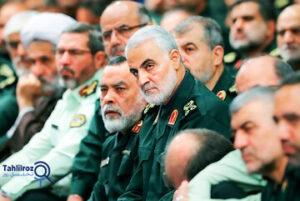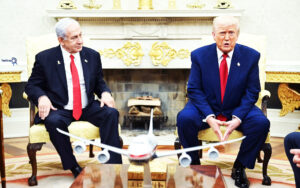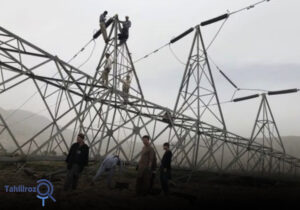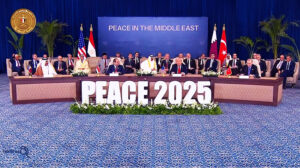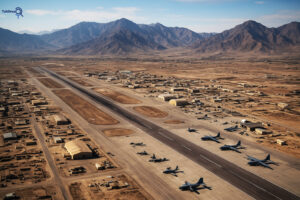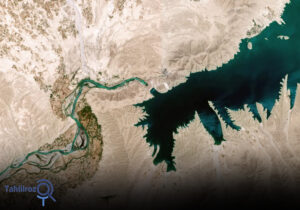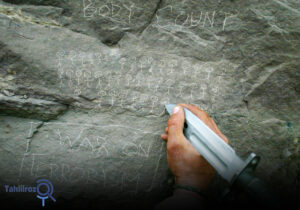British war crimes in Afghanistan
The 20-year war in Afghanistan is full of extremely shocking crimes. Various countries were involved in this war (which started with the attack of the United States of America and its allies on October 7, 2001 and continued until August 15, 2021).
Britain, as the main ally of the United States and one of the senior members of the NATO alliance, had a supporting role for the American forces since the beginning of the war, and they started their independent military activities in 2002 and were stationed in the provinces of Mazar-e-Sharif, Kabul and Helmand until the withdrawal. Most of the incidents of war crimes committed by the British forces are related to Helmand province, and details of them are being leaked in reliable international media day by day.
💢By: Sardar Akhlaqizada
The background of the presence of British forces in the twenty-year war in Afghanistan
As mentioned, Britain was one of the main allies of America in the twenty-year war in Afghanistan. British troops were first deployed to Afghanistan in 2001 as part of the response to the 11 September terrorist attacks on the United States of America.
Although the British forces initially had a support role for the American forces, since 2002, they started their independent military activities. After the collapse of the Taliban regime and the formation of a transitional government, British forces remained in Afghanistan to help secure the new transitional government, operating as part of a multinational force called the International Security Assistance Force (ISAF).
Until 2006, most British forces were settled in Kabul, the capital of Afghanistan, and a small number in the northern city of Mazar-i-Sharif. Since 2006, as part of the reorganization of ISAF, British forces have been deployed to the southern province of Helmand, where they were settled until 2014.
The highest number of British troops was in 2010, when it reached about 10,000 soldiers. After 2014, the combat activity of the British forces ended, and until the complete withdrawal in 2021, a limited number of these forces who were in Afghanistan had the role of training and advising the Afghan security forces.

British forces withdrawal from Afghanistan
On November 20, 2010, NATO announced a timetable for the withdrawal of international forces from Afghanistan. The plan, signed by Afghan President Hamid Karzai and UN Secretary-General Ban Ki-moon, handed over control of security to the new Afghan National Army (ANA) and the Afghan National Police (ANP).
In 2014, Britain officially ended all its combat operations in Afghanistan and most of the British forces returned home. The following year, NATO launched its Resolute Support Mission, committing troops, including a group of Britons, to train and assist Afghan security forces, which was renewed in 2018.
To play a role in this NATO mission, Britain sent about 1,000 soldiers to Afghanistan every year, who were mainly stationed in and around Kabul. Also, this country had provided trainers to work in educational and advisory roles in the Afghan National Army Officers Academy, Infantry Unit School and other Afghan institutions.
After the Doha Peace Agreement between the United States and the Taliban on February 2020, which required all international forces to leave Afghanistan by May 2021, by mid-summer, almost all international forces, including British forces, had withdrawn from Afghanistan. to help the safe departure of their nationals and Afghans.

British war crimes in Afghanistan
Most of British war crimes are related to their presence in Helmand province. The issue of war crimes by international forces, including the British forces, was raised from the very beginning, and reports were also published about the crimes of these forces, and the British military authorities were repeatedly asked to investigate the military violations of their soldiers in Afghanistan, which unfortunately, so far, the investigations have not been satisfactory.
Here are some reports and evidence about the British war crimes:
1) On September 23, 2021, the Guardian revealed some of the crimes of these forces in an article titled “Revealed: British forces are linked to the deaths of nearly 300 Afghan civilians.” Citing the reports of the British Ministry of Defense, this article writes that 86 children and 200 adult civilians were killed by British forces.
2) The BBC also published a documentary in the Panorama program entitled “How the British Special Forces Killing Scandal in Afghanistan Was Revealed”, in which the killing of 54 civilians by the British Special Forces (SAS) and its subsequent attempt to cover up this crime in 2011is revealed. Before airing the documentaries, the British Ministry of Defense accused the BBC of engaging in “irresponsible, false” journalism by preparing to air the allegations in the first place; But after 24 hours the military police launched a new investigation into the allegations, asking the BBC and other organizations to share relevant information with them.
3) According to a Guardian report published on December 15, 2022, Britain’s Ministry of Defense agreed to repeated requests over the years for a legal investigation into the 2010 allegations. According to the British Defense Secretary, the inquiry, led by Lord Justice Haddon Cave, is being conducted into allegations of more than 50 arbitrary killings of civilians by the British Special Forces (SAS) in Afghanistan.
4) “Prince Harry”, the youngest son of Charles III, the British King, writes about his service in the British Army in his memoirs (Spare), which was published in January 2023, and in recounting the memories of his two missions to Afghanistan, he openly admits to killing 25 people. He writes that he removed these people from the board like chess pieces, in six helicopter operations during his second mission.
5) In a recent Guardian newspaper report on July 2, 2023 titled “80 Afghan civilians may have been arbitrarily killed by SAS, inquest says”, lawyers for the victims’ families said at a public inquiry that 80 Afghans may have been victims of arbitrary killings, by three separate British SAS units that operated in Afghanistan between 2010 and 2013. The report states that a British soldier personally killed 35 Afghans in six months to implement the policy of “ending the lives of all men of fighting age”. It was previously estimated that there were 54 Afghan casualties from a single SAS unit defense; lawyers have now found that the allegations involve more British soldiers and over a longer period of time than previously thought, and are “credible evidence of a wider pattern” and systematic illegal killing. The report also states that “between 2010 and 2013, there were ‘at least 30 suspicious incidents that resulted in the deaths of more than 80 people,’ but so far there has been no independent public inquiry into what happened.”

As it can be seen, the dimensions of the crimes of foreign forces, including British war crimes in Afghanistan, are revealed day by day, which indicates a series of cruel, targeted and systematic crimes, although their respective countries shamelessly refuse to admit them.
The possibility of prosecuting British war crimes by the ICC
According to paragraph 1 of article 5 of the statute of the International Criminal Court, war crime is one of the crimes under the jurisdiction of the court. According to Article 11 of the Rome Statute, the aforementioned court can deal with crimes committed after 2002.
According to Article 12 of the Statute, this jurisdiction is related to crimes committed in the territory of member countries or nationals of this country in a non-member country. Of course, according to Article 17 of the Statute, the jurisdiction of the International Criminal Court is supplementary, and the first and main jurisdiction is related to the countries that must deal with the relevant crimes, including the war crimes committed by the British forces.
According to what is posted on the court’s website, Afghanistan deposited its instrument of accession to the Rome Statute on February 10, 2003; Therefore, the International Criminal Court can exercise its jurisdiction over the crimes under the Rome Statute committed in the territory of Afghanistan or by its nationals since May 1, 2003, and considering that the crimes committed by British forces are related to the period of 2006 to 2014, i.e. the time when these forces were present in Helmand province, there is no obstacle for the International Criminal Court to investigate British war crimes in Afghanistan.
Although British ministers have agreed to investigate the war crimes of its soldiers from September 2022 and have promised to conduct a comprehensive investigation, which is considered to be an obstacle to the entry of the court due to the complementary jurisdiction of the International Criminal Court; But it seems that the British government does not have a serious will to investigate the possible crimes of its forces in Afghanistan and, as a result, give them a fair trial.
Because, first of all, Britain has been present in Afghanistan since the beginning of the 20-year war, and despite numerous reports of war crimes committed by the country’s forces, it resisted repeated requests for an investigation; Secondly, after this country agreed to investigate British war crimes in Afghanistan, there is no official report of the investigation.
The UK government’s delay in investigating British war crimes is a sufficient proof of the country’s unwillingness to prosecute its forces for war crimes in Afghanistan; Therefore, it can be said that the possibility of entering the International Criminal Court is available based on Article 17 of the Statute and there is no legal obstacle regarding the trial of the British forces in this court.

Translator: Mohsen Shahrafiee


